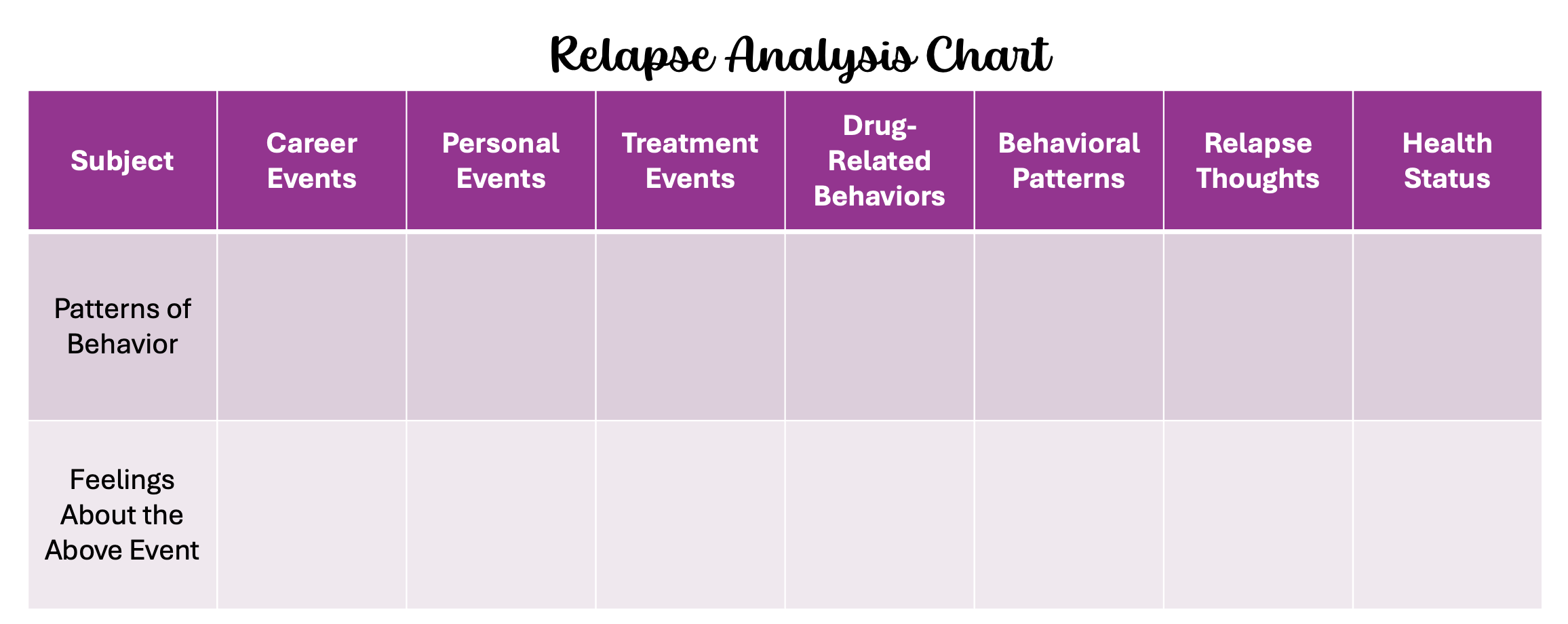The Gold Star Method: A Creative Twist on the Matrix Model
Back in grad school, my favorite class hands down was my substance abuse course. I had an incredible professor, and for once, the material just clicked. So much of grad school can feel like swimming in theory and over-intellectualizing behavior that’s deeply human. But this class? It was refreshingly practical. We learned real tools—ones I still use with clients today.
One of my go-to interventions is the Matrix Model. Over the years, I’ve put my own spin on it to make it more approachable and easy to use. Whether someone is navigating substance use, mood disorders, or just trying to feel more emotionally steady, this adapted version has been a game-changer.
Traditionally the Matrix Model is an intensive outpatient program that takes a structured approach to reduce substance use, identify triggers, and change behavior. One of the main skills I pull from the Matrix model is tracking the various events throughout the week that lead up to a relapse.
According to the Substance Abuse and Mental Health Services Administration, “a relapse episode does not begin when you take a drug. Often, things that happen before you use indicate the beginning of a relapse. Identifying your patterns of behavior will help you recognize and interrupt the relapse.”
Using the chart above, note events that occurred during the week immediately before the relapse.
Let me break down my simplified, modified version of the Matrix Model—something you can use not just for substance use and relapse, but for overall emotional wellness.
Here’s what you’ll need: a paper calendar and a pack of gold and silver star stickers (yes, we’re bringing back childhood reward charts—with purpose!). Each day, give yourself a gold star for a “good” day—this might mean staying substance-free, using healthy coping strategies, or just feeling emotionally steady. If you have a tough day—maybe a relapse or you turn to less helpful coping mechanisms—give yourself a silver star instead.
Do this every day for a month. Then, take a look back. Do you notice any patterns? What happened on or before your silver star days? Did you end the month with more gold or silver stars?
Think of each day as compounding interest—every choice builds on the one before. The goal here isn’t shame or perfection—it’s awareness. Once you can identify what tends to push you toward a silver star day, you can start planning ahead. It’s all about moving from reactive to proactive.
Your schedule is your structure
Scheduling might not sound fun or sexy—but it is powerful. The Matrix Model highlights just how important structure is when it comes to sustaining the progress you’ve made. As I mentioned earlier, the data you’ve gathered from tracking with your calendar isn’t just for reflection—it’s there to help you plan ahead. And that means building in some healthy scaffolding.
In this phase, I want you to write everything down and track consistently. Yes, it might feel tedious—but this work lays the foundation for real, lasting change. You may not need to be this structured forever; once you hit the maintenance phase, things can loosen up a bit. But for now, structure is your superpower.
This isn’t about rigidity—it’s about reclaiming control. Every time you write something down, you’re reinforcing the changes you’re working hard to make. You’re reminding yourself that you’re not powerless. You’re focused, organized, and showing up every day to become the best version of yourself.
Real-Life Example
I once worked with a client who was going through a tough breakup. She was navigating depression, anxiety, and struggling with really low self-esteem. She wanted to feel better—but the coping mechanisms she relied on were holding her back from the healing she was seeking. Alcohol was her go-to. It gave her a quick boost—she felt confident, fun, and carefree when drinking. But the aftermath? Blackouts, risky choices, and crashing emotions the next day. It became a cycle that left her feeling worse than before.
So we started using the calendar tracking method. The goal was to identify her triggers, recognize healthy habits, and make space for reflection—not shame—around relapse. She took it a step further and got creative with it: different stickers to track her emotions, energy levels, and behaviors. Instead of just “good” or “bad” days, she created a nuanced, visual scale that made it easier to see patterns.
Over time, she began to notice how alcohol—though it felt good in the moment—was actually leaving her depleted for days afterward. The visual feedback helped her stay motivated and honest with herself. Together, we slowly built a schedule filled with supportive friends, workout classes, meditation, and other grounding practices. Planning was hard for her at first, so we kept it simple—just one or two intentions each week. As her confidence grew, so did her goals.
After a few months, the way she viewed relapse totally shifted. Instead of shame, she approached those days with curiosity and compassion. She started asking: What led up to this? What can I learn? That mindset shift made all the difference.
Eventually, she didn’t need the calendar and sticker system every day—it had done its job. She’d built a lifestyle with enough structure and insight to support her mental health in a sustainable, empowering way.
Be The Change You Wish To See
The beauty of this approach is that it’s adaptable, empowering, and rooted in self-compassion. Whether you’re working through substance use, managing mood swings, or simply trying to feel more grounded, approaches like the simplified Matrix Model can help you reconnect with your intentions and track your growth in real time.
Change doesn’t happen overnight—but it does happen in the small, consistent choices you make each day. So grab your calendar, your stickers, and start paying attention. Not to judge yourself, but to understand yourself.
You’re not broken. You’re learning. With structure, awareness, and a little creativity, you can build a life that feels more stable, more intentional, and more like you.
Written by: Stephanie Franzoni, MA, LCPC, CST




